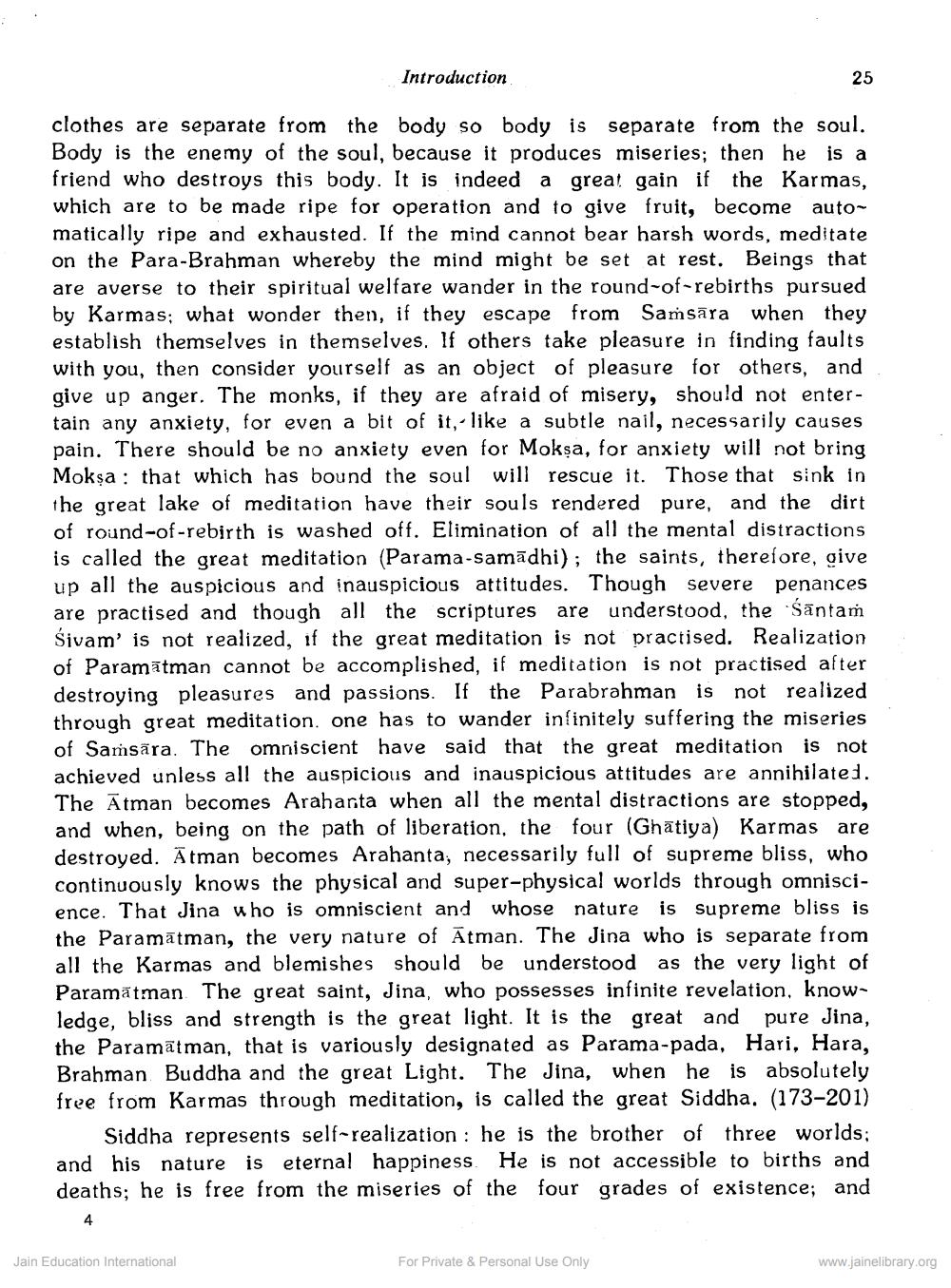________________
Introduction
25
clothes are separate from the body so body is separate from the soul. Body is the enemy of the soul, because it produces miseries; then he is a friend who destroys this body. It is indeed a great gain if the Karmas, which are to be made ripe for operation and to give fruit, become automatically ripe and exhausted. If the mind cannot bear harsh words, meditate on the Para-Brahman whereby the mind might be set at rest. Beings that are averse to their spiritual welfare wander in the round-of-rebirths pursued by Karmas; what wonder then, if they escape from Saṁsāra when they establish themselves in themselves. If others take pleasure in finding faults with you, then consider yourself as an object of pleasure for others, and give up anger. The monks, if they are afraid of misery, should not entertain any anxiety, for even a bit of it, like a subtle nail, necessarily causes pain. There should be no anxiety even for Mokşa, for anxiety will not bring Moksa : that which has bound the soul will rescue it. Those that sink in the great lake of meditation have their souls rendered pure, and the dirt of round-of-rebirth is washed off. Elimination of all the mental distractions is called the great meditation (Parama-samādhi); the saints, therefore, give up all the auspicious and inauspicious attitudes. Though severe penances are practised and though all the scriptures are understood, the śāntam Sivam' is not realized, if the great meditation is not practised. Realization of Paramātman cannot be accomplished, if meditation is not practised after destroying pleasures and passions. If the Parabrahman is not realized through great meditation. one has to wander infinitely suffering the miseries of Samsāra. The omniscient have said that the great meditation is not achieved unless all the auspicious and inauspicious attitudes are annihilated. The Ātman becomes Arahanta when all the mental distractions are stopped, and when, being on the path of liberation, the four (Ghātiya) Karmas are destroyed. Ātman becomes Arahanta, necessarily full of supreme bliss, who continuously knows the physical and super-physical worlds through omniscience. That Jina who is omniscient and whose nature is Supreme bliss is the Paramātman, the very nature of Ātman. The Jina who is separate from all the Karmas and blemishes should be understood as the very light of Paramātman The great saint, Jina, who possesses infinite revelation, knowledge, bliss and strength is the great light. It is the great and pure Jina, the Paramātman, that is variously designated as Parama-pada, Hari, Hara, Brahman Buddha and the great Light. The Jina, when he is absolutely free from Karmas through meditation, is called the great Siddha. (173-201)
Siddha represents self-realization : he is the brother of three worlds; and his nature is eternal happiness. He is not accessible to births and deaths; he is free from the miseries of the four grades of existence; and
Jain Education International
For Private & Personal Use Only
www.jainelibrary.org




